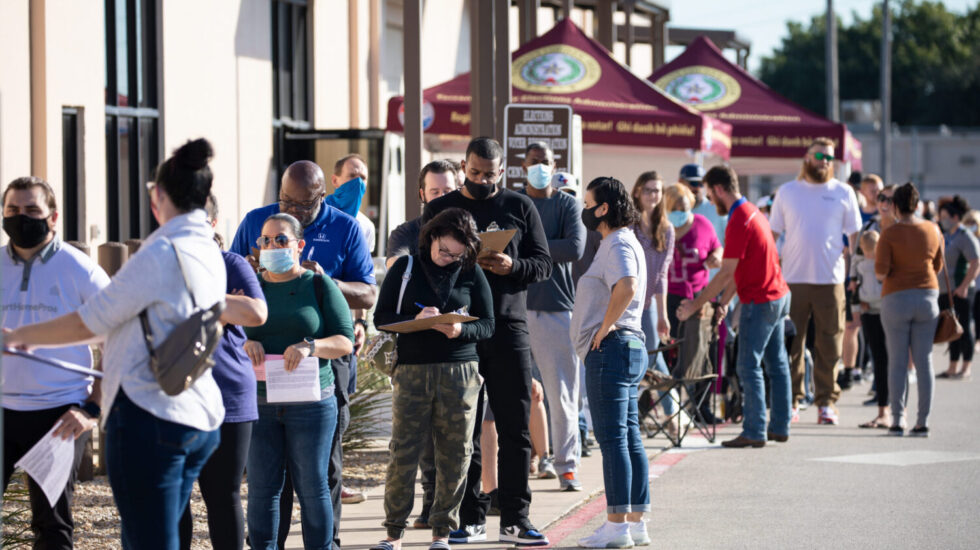Texas’ new voting law – one of the most restrictive in the county – has led to an abnormally high rejection rate of absentee ballot requests for primary elections in March, according to The Texas Tribune.
The law requires voters seeking a mail-in ballot to provide their driver’s license ID number, a state ID number, or the last four digits of their social security number. That information is then checked against the voter roles.
However, nearly a million Texans don’t have one or both of those numbers on file with election offices. Therefore, a legitimate request can be denied because the voter’s information cannot be verified. There is a process to provide missing information from rejected ballot requests, but voters who want to submit a mail-in vote for March’s election must act before mid-February.
“It’s disturbing that our senior citizens who have relished and embraced voting by mail are now having to jump through some hoops, and it’s upsetting when we have to send a rejection letter [when] we can see they’ve voted with us by mail for years,” said Jacque Callanen, the Bexar County election administrator, to The Tribune.
The outlet adds:
In Harris County, 208 applications — roughly 16% of the 1,276 applications received so far — have been rejected based on the new rules. That includes 137 applications on which voters had not filled out the new ID requirements and 71 applications that included an ID number that wasn’t in the voter’s record.
In Travis County, officials said they’ve rejected about half of the roughly 700 applications they’ve received so far, with the “vast majority” of rejections based on the new voting law.
In Bexar County, officials have rejected 200 applications on which the ID section was not filled out. Another 125 were rejected because the voter had provided their driver’s license number on the application, but that number was not in their voter record.
San Antonio Report flags other issues stemming from the new law:
Election offices can send a mail-in ballot application to someone only if it is requested.
If a resident calls the office to request an application, that individual cannot also request one for her husband, for example, Callanen explained during a Bexar County Commissioners Court meeting. “We have to hear it from him. … It’s just ridiculous.”
The New York Times provides background on the Texas law – and the Department of Justice’s efforts to stop it:
The Justice Department on [November] sued Texas over the state’s new voting law, arguing that the Republican-led measure would disenfranchise Texans who do not speak English, people with disabilities, older voters and those who live outside the United States.
The department argues that the law violates the Voting Rights Act by limiting the help that poll workers can provide to voters. It also contends that the law runs afoul of the Civil Rights Act by requiring mail-in ballots to be thrown out if they fail to include a voter’s current driver’s license number, an election identification number or part of a Social Security number.



